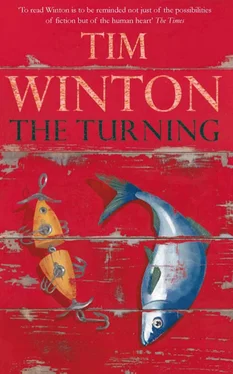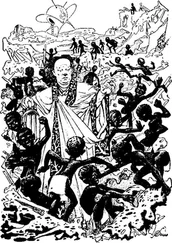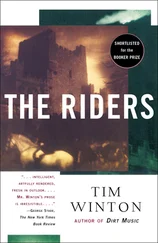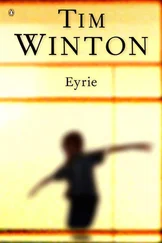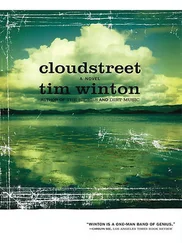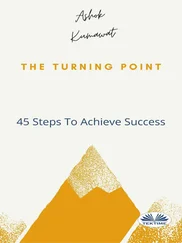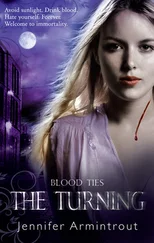I didn’t go to pieces there in the fug of the cubicle but afterwards I subsided into a misery I couldn’t disguise. I had always believed I could endure what people thought of me. If it wasn’t true, I thought, how could it matter? But I’d gone from letting people think what they would to actually lying about myself. I’d fallen in with people whose view of life was more miserable and brutish than anything I’d ever imagined. It was as though I’d extinguished myself.
I went to class in a daze. The teacher took one look at me and sent me to the sick room.
Are you late with your period? asked the nurse.
I could only stare in horror.
You can imagine how the news travelled. I’m sure the nurse was discreet. The talk probably started the moment I left the class. Jackie went to the sick room. Jackie was sick at school. Jackie was bawling her eyes out. Jackie’s got a bun in the oven.
It wasn’t that I refused to answer the nurse’s question. I was simply trying so hard not to cry that I couldn’t speak. And saying nothing was no help at all.
During the final term of that year I went back to being a schoolyard solitary. I spent hours in the library to avoid scrutiny and to stave off panic, and the renewed study brought about a late rally in my marks. I heard the rumours about my ‘condition’ and did my best to ignore them. The only thing more surprising than my good marks was the new pleasure they gave me. It was all that kept me from despair.
I still felt a bubble of joy rise to my throat when Boner burbled up but it didn’t always last out the ride. On weekends, as spring brought on the uncertain promise of the southern summer, I took to wearing a bikini beneath my clothes and I badgered Boner to let me out at the beaches we drove to. I couldn’t sit in the car anymore. I wanted to bodysurf, to strike out beyond the breakers and lie back with the sun pressing pink on my eyelids. I wanted him there, too, to hold his hand in the water, for him to feel me splashing against him. But there wasn’t a chance of it happening. He let me out but I had to swim alone. The beaches were mostly empty. There was nobody to see my flat belly. The water was cold and forceful and after swimming I lay sleepy-warm on a towel. The best Boner could do was to squat beside me in his Johnny Reb boots with a rolly cupped in his palm.
I began to demand more of Boner. Perhaps it was a renewed confidence from good marks and maybe it was a symptom of a deeper bleakness, a sense of having nothing left to lose. Either way I peppered him with questions about himself, things I hadn’t dared ask before. I wanted to know about his family, the details of his job, his honest opinions, where he wanted to be in ten years’ time, and his only responses were shrugs and grins and puckerings and far-off looks. When I asked what he thought of me he murmured, You’re Jackie. You’re me navigator.
I didn’t find it charming; I was irritated. Even though it dawned on me that Boner was lonely — lonelier than I’d ever been, lonely enough to hang out with a fifteen-year-old — I felt a gradual loss of sympathy. I could sense myself tiring of him, and I was guilty about it, but his silence began to seem idiotic and the aimless driving bored me. With no one else to speak to, I’d worn myself out prattling on at him. I’d told him so much, yearned so girlishly, and gotten so little in return.
The weather warmed up. The van was hot to ride in. The upholstery began to give off a stink of sweat and meat. I found shotgun shells in the glovebox. Boner wouldn’t discuss their presence. I found that a whole day with him left me depleted. I missed being a girl on foot, I wanted the antic talk of other girls, even their silly, fragile confidences. Boner wouldn’t speak. He couldn’t converse. He couldn’t leave the van. He wouldn’t even swim.
I tried to find a kind way to tell him that it wasn’t fun anymore but I didn’t have the courage. One Saturday I simply didn’t go to the Esso. On Sunday I helped my startled mother make Christmas puddings. The next week I stayed in and read Papillon . I watched ‘Aunty Jack’. When I did venture out I avoided places where Boner might see me. It was only a few days before he found me. I heard him ease in beside me on the road home from school. I felt others watching. I leant in to the open window.
Ride, Jack? he murmured.
Nah, I said. Not anymore. But thanks.
He shrugged and dragged on his rolly. For a moment I thought he’d say something but he just chewed his lip. I knew I’d hurt him and it felt like a betrayal, yet I walked away without another word.
Every summer my parents took me to the city for a few weeks. I was always intimidated and selfconscious, certain that the three of us were instantly identifiable as bumpkins, though I loved the cinemas and shops, the liberating unfamiliarity of everybody and everything in my path. That year, after the usual excursions, we walked through the grounds of the university by the river’s edge. The genteel buildings were surrounded by palms and lemon-scented gums and here and there, in cloisters or against limestone walls, were wedding parties and photographers and knots of overdressed and screaming children.
I sensed a sermon in the wings, a parable about application to schoolwork, but my father was silent. As we walked the verandahs he seemed to drink in every detail. There was a softness, a sadness to his expression that I’d never seen before. He rubbed his moustache, wiped his brow on the towelling hat he wore on these trips, and sauntered off alone.
What’s with Dad? I asked. Did you guys have your wedding pictures taken here, or something?
My mother sat on a step in her boxy frock. Sweat had soaked through her polka dots to give her a strangely riddled look.
No, dear, she said. He wanted to be an architect, you know. Thirty years is a long time to have regrets.
I stood by her a while. Despite the languor of her tone I sensed that we’d come to the edge of something important together. I could feel the ghosts of their marriage hovering within reach, the story behind their terrible quiet almost at hand, and I hesitated, wanting and not wanting to hear more. But she snapped open her bag and pulled out her compact and the moment was gone, a flickering light gone out.
On the long hot drive home that summer I thought about the university and the palpable disappointment of my parents’ lives. I wondered if the excursion to the campus had been an effort on their part to plant a few thoughts in my head. Consciously or not they’d shown me a means of escape.
In the new school year I more or less reinvented myself. Until that point, except for my connection with Boner, I had believed that I was average; in addition to being physically unremarkable I assumed I wasn’t particularly smart either. The business with Boner was, I decided, an aberration, an episode. For the bulk of my school life I’d embraced the safety of the median. And now, effectively friendless, with the image of the university and its shady cloisters as a goad, I became a scowling bookworm, a girl so serious, so fixed upon a goal, as to be unapproachable. I never did return to the realm of girly confidences. Friends, had I found them, would have been a hindrance. In an academic sense I began to flourish. I saw myself surrounded by dolts. Contempt was addictive. In a few months I left everyone and everything else in my wake.
Of course no matter what I did my louche reputation endured. These things are set in stone. Baby booties and condoms were folded into my textbooks. The story went that Boner had dropped me for not having his child, that he was out to get me somehow, that my summer trip to Perth had involved a clinic. Last year’s polaroid tarts were all gone now to Woolworths and the cannery, there was nobody to share the opprobrium with. Yet I felt it less. My new resolve and confidence made me haughty. I was fierce in a way that endeared me to neither students nor staff. I was sarcastic and abrupt, neither eager to please nor easy to best. I was reconciled to being lonely. I saw myself in Rio, Bombay, New York; being met at airports, ordering room service, solving problems on the run. I’d already moved on from these people, this town. I was enjoying myself. I imagined an entire life beyond being Boner McPharlin’s moll.
Читать дальше
